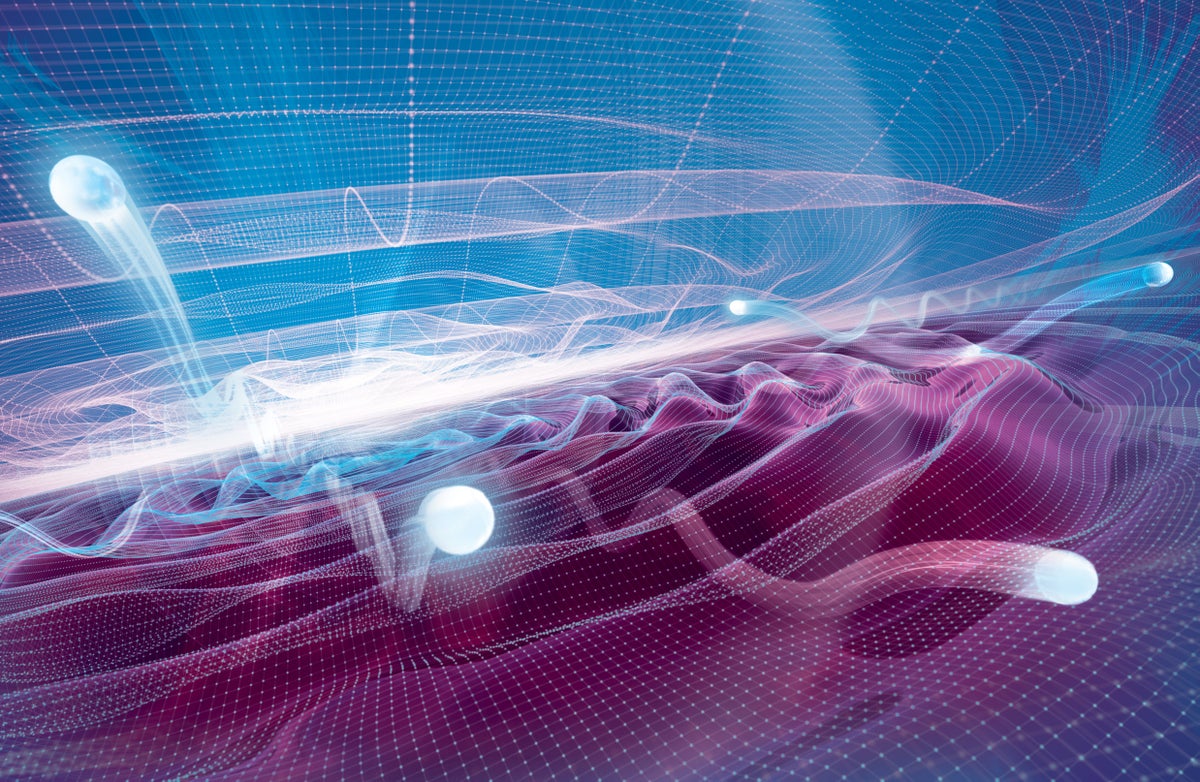The experiments all involve events happening at low energies, where the predictions of strings, loops, and the like agree, so they aren’t going to tell us which specific theory of quantum gravity is correct. Still, experimental evidence that gravity is actually quantized would be groundbreaking.
There is still a long way to go over the next few years to carry out such trials (and there would be an even longer path toward enacting our own thought experiment). But if they can be successfully accomplished, they will test the low-energy domain on which almost all theories agree. If researchers find evidence for spacetime in superposition, then they will have the first direct evidence for the basic assumptions of our theories of quantum gravity. We will substantially rule out the possibility that gravity is classical, a significant and previously unexpected step forward. More than that, experimentalists would have reached a new horizon of the physical world, producing a region of spacetime that is observably quantum in a macroscopic laboratory. At last physics will have concretely entered a realm that for now remains a land of hypothesis.
If signs of superposition are notobserved, the experiments will instead support speculations that gravity is intrinsically classical, confounding the expectations of much of the physics community and plunging a huge amount of work from the past 40 years into crisis. Such a result would require a significant revision of our understanding of the world and of the connection between quantum theory and gravity.
In either case, the effect would be momentous.


